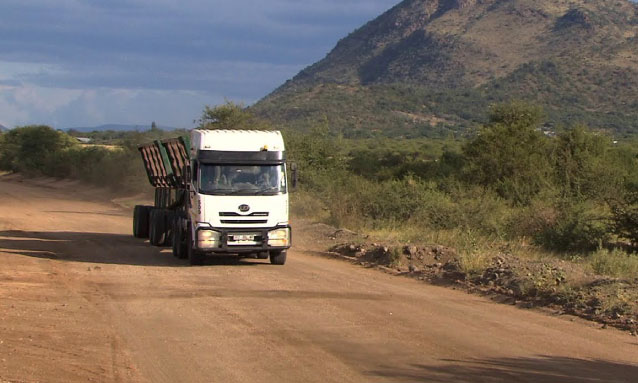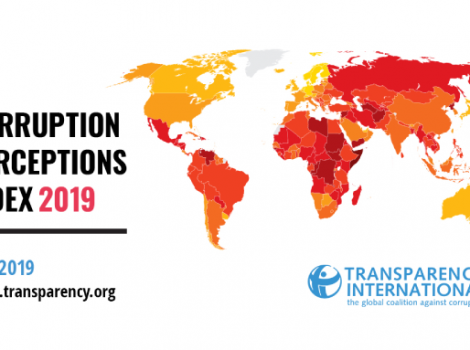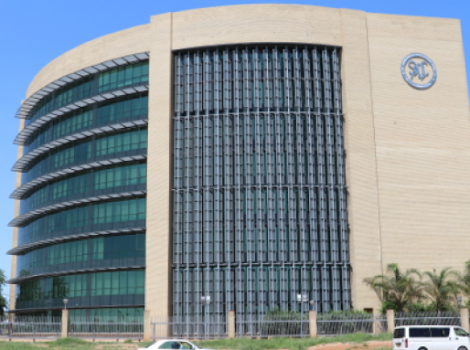
The outbreak of COVID-19 has affected economies globally, prompting countries to impose measures which have restricted movement of goods, services and people across borders in efforts to contain the spread of the pandemic. When COVID-19 broke out, most border posts were closed for the general public and only allowed the movement of essential goods such as medical supplies. Truck drivers have played a crucial role in the delivering of goods to various destinations.
The introduction of these measures has helped greatly to curb the spread of COVID-19. In interviews at Tlokweng border post between Botswana and South Africa recently, truck drivers said they were impressed with the overall services at the borders, even though each country had its own regulations. They, however, noted a few hiccups to do with the waiting period before receiving the COVID-19 test results, quarantine time and finally being cleared. A truck driver from Khoemacau mine in Botswana said even though the borders were not exactly the same, he was happy with service delivery.
“The system itself is okay, and so are the officers who assist us. I don’t have any problems. The link between Botswana and South Africa is very fast except only when the network is down,” he said, adding that chaos only erupted after drivers had been tested and awaited the results as there was no proper control to manage the movement of truck drivers. He said those who tested negative could unknowingly interact with those who were positive as they wouldn’t know each other’s statuses.
He said this should be noted by the relevant officials and precautionary measures should be taken to ensure that the truckers’ health is not compromised, adding that in most instances they loiter around the border posts areas without accommodation. Another truck driver said ever since the pandemic broke out, business has been greatly affected as they have to wait to get the results before they can proceed with the journey. They sometimes spend days at the border, losing them any profit made.
He suggested that countries consider issuing them COVID-19 certificates which would last for two weeks as they were frequent travellers, other than the three days they were given.
“Since the introduction of tests at the border, I have done more than 37 COVID-19 tests and have always had negative results. It is strenuous for us. Why can’t we use the same test results for the next two weeks if one is negative?”
However, the driver said they no longer had to undergo the 14-day quarantine as was the case earlier in the year. The results were usually available after three days, which is highly commendable, he said. Another trucker said there was an improvement in turnaround times regarding COVID-19 tests and the clearance of goods. By contrast, earlier this year most countries closed their border posts, only allowing the delivery of essential services to some countries. This in turn would lead to long queues, which eventually led to cargo delays, thus affecting cross border trade.
“When most cases of COVID-19 tests were detected at the border posts, a lot of people viewed us as the transmitters of the Coronavirus and this made us struggle to fit in with society due to the stigma attached to this virus,” he said.
Most truck drivers said COVID-19 should be a wakeup call to officials in each country to employ proper measures to deal future pandemics without compromising trade between countries and come up with comprehensive policies to ensure speedy service delivery at the border posts. They were felt that even though comprehensive guidelines and protocols have already been developed by international organisations such as the Southern African Development Community (SADC), East African Community (EAC) and Common Market for Eastern and Southern Africa (COMESA), a World Health Organisation-co-ordinated and harmonised approach is required to tackle the pandemic.
SADC, EAC and COMESA Member States came up with a holistic approach to control the movement of essential goods and personnel at the borders by introducing measures to minimise the spread of COVID-19. The Tripartite Region Member States have adopted the harmonised Tripartite Guidelines on Trade and Transport Facilitation Guidelines for Safe, Efficient and Cost-Effective Movement of Goods and Services during the COVID-19 pandemic.
The guidelines are aimed at containing the spread of COVID-19 while facilitating the trade and movement of goods and services across the tripartite area during the pandemic. The guidelines have been adopted as minimum uniform regulations, procedures and standards to reduce the spread of COVID-19 and minimise disruptions in the supply chain, facilitating the movement of goods and services across the region.
The specific objectives of the guidelines are to complement the regional and national measures against the COVID-19 pandemic aimed at protecting citizens against the pandemic by limiting its spread through transport and mobility across borders. They seek to safeguard the existing trading arrangements to minimise the disruption to cross-border trade in goods and services while striking a balance between public health on theone hand and the need to sustain national economies, livelihoods of citizens and food security.
The guidelines further strive to ensure the smooth and uninterrupted movement of goods and services during the COVID-19 pandemic by balancing, aligning, harmonising and coordinating COVID-19 response measures with the requirements of trade and transport facilitation. The guidelines are expected to facilitate and support tripartite Member States in implementing the policies and measures to combat COVID-19 as recommended by WHO, World Customs Organisation (WCO), International Civil Aviation Organization (ICAO), International Maritime Organisation (IMO) and African Centre for Disease Control.
They are complemented by the Tripartite Transport and Transit Facilitation Programme (TTTFP), which is funded to the tune of Euro 21 million by the European Union under a SADC-EU partnership. The programme has been amended to include a corridor trip monitoring system that will allow the tracking of vehicles and drivers, as well as the sharing of information on their health status across the borders, including COVID-19 related information.
The TTTFP addresses these challenges through the implementation of harmonised road transport policies, laws, regulations, systems and standards that affect drivers, loads, vehicles and road infrastructure. The programme has seen increased efficiency of the transport corridors. The objectives of the TTTFP are to develop and implement harmonised road transport policies, laws, regulations and standards for efficient cross border road transport, transit and logistics services, systems and procedures with a view to reducing transport costs across the mainland countries of the SADC, COMESA and EAC region and facilitate trade.
Newsand Press Release Source SADC Posted 15 Dec 2020 Originally published 14 Dec 2020 Origin View original



